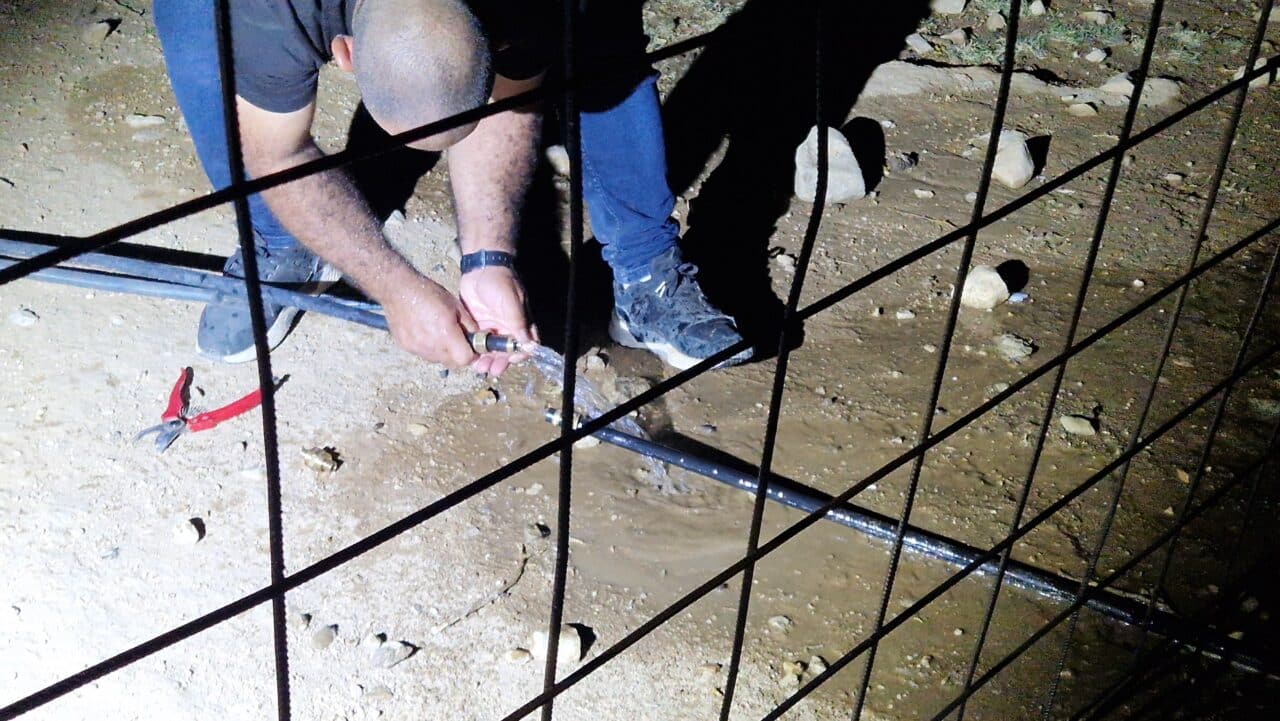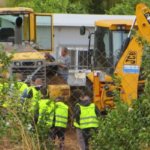Feature: Jordan valley, zone of silent Israeli-Palestinian conflict
11:22, January 23, 2011
Looking at a hilltop that overlooks the area where he lives, Sbeih, the 57-year-old resident of the West Bank and also known as Abu Ra’fat, can only find endless barren mountains, where springs dried up and some trees coming to life naturally.
Looking at some primitive houses that were built out of tin and randomly spread in the area, Abu Ra’fat waved with his dry hands and said “what I can see is that the Israeli occupation has not left us any chance to stay here.”
Abu Ra’fat, like other residents of the Jordan Valley, lives on sheep herding and agriculture. He now lives in al-Fareseya neighborhood, 20 km east of the northern West Bank town of Tubas.
“Our life is missing the simplest basics of infrastructure,” complained Abu Ra’fat.
The Jordan Valley area in northern West Bank, which represents 26 percent of the entire West Bank, is an area that witnesses silent conflict between the Israelis and the Palestinians, both sides consider it an essential strategic area in any future permanent peaceful solution.
The Palestinians accuse Israel of escalating its measures to control the Jordan Valley, which is still classified as area “C” according to Oslo peace accord which Israel signed with Palestine Liberation Organization (PLO) in 1993. This means that Israel is still have a complete control of the area.
Israel, which occupied the West Bank in 1967, still controls around 90 percent of the Jordan Valley, which is on the border between the West Bank and Jordan. Israel considers the area a security natural reserve. Israel insists that it wants to keep control of the area even after reaching a permanent deal with the Palestinians.
“The Israelis had turned our life into hell. We see its military camps and bases spread in the area, which blocks any possible opportunity to build an infrastructure that helps the people to cope with the area’s living circumstances,” said Abu Ra’ fat.
Abu Ra’fat can never forget when the Israeli army shot his brother dead several years ago when he was herding sheep. He said with anger that “the army justified its crime by saying that my brother walked in a closed military zone with his sheep.”
“In fact, Israel had gradually turned our lands into closed military areas that no one can approach,” said Abu Ra’fat as he pointed at a 120 km long and 15 km wide area of the Jordan Valley. Signs there read “Don’t approach, it’s a closed military zone.”
Moreover, Abu Ra’fat said the Israeli authorities demolished his house, saying it was built without a license.
“They destroyed my house, although I repeatedly applied, each time my request was denied. Many residents had applied for a license, but do you think they give anyone a license? Of course not, then they come and demolish our houses,” said Abu Ra’fat.
The suffering of al-Fareseya residents is mounting due to the Israeli policy of obstructing any possibility of development. They say the Israeli policy “is clearly aiming at compelling the residents to leave in order to give space for settlement and then imposing a full control of the entire area.”
The Jordan valley area’s water represents 47 percent of the total water resources of the Palestinians. Thus the area is considered as the nerve of the future Palestinian economy and agriculture.
Fathi Khdeirat, a Palestinian who is in charge of “Saving the Jordan Valley” campaign, told Xinhua that Israel “is openly stealing the valley’s water in an attempt to kill the area by preventing farmers from using water.”
“The Palestinians are not allowed to use the water in the Jordan Valley, dig new water wells or renovate the old ones. Meanwhile, Israeli settlements in the area consume around 98 percent of the Jordan Valley’s groundwater,” said Khdeirat.
The governor of Tubas and the northern Valley Marwan Tubasi told Xinhua that al-Fareseya area “is facing an organized policy of Judaizing,” adding “the residents receive on daily bases warrants of demolitions of their houses and farms.”
Israeli Prime Minister Benjamin Netanyahu repeatedly announced that Israel is not intending to hand over the Jordan Valley’s area to the Palestinians once a permanent peace agreement is reached, while the Palestinians refuse any Israeli control over the area.
Source:Xinhua


